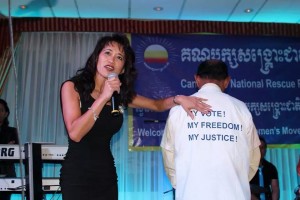Cambodians went to the polls last weekend, but it was a sham of an election, dominated by Hun Sen, the country’s aging autocrat. With the opposition party banned and soldiers at polling booths to ensure the outcome went only one way, no credible organization signed off on the election’s validity—but quite a few fake organizations did.
Election observation in authoritarian regimes is a relatively new phenomenon. Beginning in the late 1980s, the number of elections monitored by intergovernmental organizations, nongovernmental organizations, and sovereign states increased substantially. This brought increased criticism of the behavior of authoritarian regimes, which signaled their compliance to the norm of external observation in exchange for certain benefits, such as legitimacy, foreign direct investment, and membership in international organizations. This gave democracy promotion actors, which coordinated a majority of election-monitoring missions, newfound leverage over the behavior of authoritarian regimes. In the last decade, however, dictators have fought back.
Writing in Foreign Policy in October 2013, Christopher Walker and Alexander Cooley identified the sudden emergence and increasing use of what they termed “zombie monitors” among a small group of savvy dictators. In the intervening years, there has been a wider effort to understand how exactly these groups erode domestic perceptions of electoral integrity and corrode the international norm of external election observation.
The inconvenient truth, however, is that our determination to identify and analyze these zombie monitors has not kept pace with the more cunning ways dictators have subsequently deployed them. The last few years has witnessed a few distinct changes in the use of fake election observation groups, which has coincided with the rise of more sophisticated forms of cooperation among authoritarian regimes.
The existence of zombie monitors generally does not become apparent until they release a deceptive statement after the election outcome, which makes glowing reference to the vagaries of integrity, peace, stability, and transparency. The opportunity to observe zombie monitors before they reveal themselves is thus rare. Unless, of course, you look to Cambodia’s general election last weekend.
With no credible groups willing to validate a sham election, Hun Sen turned to zombie monitors to do so. This included more well-known groups such as the Centrist Asia Pacific Democrats International, International Conference of Asian Political Parties, and the Shanghai Cooperation Organization. All of them have a documented history of prejudicial election assessments.
At the center of the zombie horde in Cambodia last weekend was Anton Caragea, who has established tiesto Hun Sen and who has previously bestowed strange awards upon dictators in Djibouti, Ethiopia, Tajikistan, Turkmenistan, and Zimbabwe. Caragea’s Twitter account is a stream of praise for Cambodia and Hun Sen. Using his leadership of the European Council on International Relations (not to be confused with the European Council on Foreign Relations), Caragea has also previously providedflattering assessments of highly flawed elections in Kazakhstan.
Described as a professor of international relations from Spiru Haret University in Bucharest (declared to be a “diploma mill” by local journalists), Caragea is the recipient of dubious titles and awards bestowed by dictators around the world. He claims to be the author of 20 books and more than 300 articles across the fields of cultural history, development, heritage, history, humanitarian activities, international relations and diplomacy, political and economic doctrines, and theology. None of these books appear anywhere online, except on his website.
To lend credibility to Hun Sen’s sham election, Caragea has mobilized a horde of zombie monitors, listed on his own website, including the Diplomatic Center, Institute of International Relations and Economic Cooperation, European Council on Tourism and Trade, European Council on International Relations, European Diplomatic Academy, Parliamentary Assembly for Sustainable Development Goals, and World Elections Monitors Organization. Despite the plethora of names, Caragea appears to be either the director or president of every single group. A preliminary monitoring report released by a few of them declared that the election has all the hallmarks of being a “transparent, free, fair and democratic valid polls.” In a meeting with Hun Sen the morning after the vote, Caregea congratulated the dictator for holding a “free, fair and transparent election.”
Cambodia isn’t the only country using such groups.
Eurasia was the birthplace of zombie monitors. In their original analysis, Walker and Cooley identified the deployment of these groups in Azerbaijan, Belarus, Kazakhstan, and Russia. The scourge of fake election observation groups is now a global problem. In May, for example, then-Prime Minister Najib Razak attempted to use the Malaysian Commonwealth Studies Centre to lend credibility to the general election. (This represents an exceptional case of a dictator who used a zombie election monitor and still lost an election.) Similar zombie monitors have been reported in Ecuador, Egypt, Ethiopia, Mozambique, Sudan, Tajikistan, Uganda, Uzbekistan, Venezuela, and Zimbabwe, to name but a few countries. The appeal of fake election observation groups is evidently spreading.
Beyond the fact that zombie monitors are now operating on four continents, the target of their subterfuge has also expanded. The initial purview of these groups was national elections held periodically for executive and legislative office. Despite that still being the primary focus, dictators have begun employing zombie monitors for subnational elections and referendums. In Venezuela, for example, President Nicolás Maduro had the Council of Electoral Experts of Latin America give a clean bill of health to the 2017 gubernatorial elections, which were judged to be clean and transparent by its 1,300-member delegation. In Ukraine, Russian President Vladimir Putin used the Eurasian Observatory for Democracy and Elections to recruit scores of politicians from far-right parties to validate the 2014 Crimea referendum, which was regarded as illegitimate by the European Union and the United States.
Another distinct change in the way authoritarian regimes employ fake election observation groups is denoted by the decline of regional zombies. The most systematic account of this phenomenon identifies intergovernmental organizations or international nongovernmental organizations run by authoritarian states as the main antagonists, such as the Commonwealth of Independent States and the Shanghai Cooperation Organization. But in recent years dictators have increasingly turned to an endless array of smaller organizations, some of them and some themselves with ties to authoritarian states. In such cases, prominent individuals representing these organizations have been recruited as agents of manipulation and misconduct.
The few distinct changes dictators have made to the deployment of fake election observation groups has compounded the difficulty of identifying and analyzing their activities. The zombie show taking place in Cambodia this weekend represents the most egregious example yet of an authoritarian regime using fake election observation groups.
Despite the growing audacity of dictators, a coordinated response from the democratic states that have long promoted the international norm of external election observation has yet to emerge. The evolution of zombie monitors requires demands more resources be devoted to identifying, analyzing and, ultimately, discrediting them. The worst-case scenario is that these fake election observation groups become indistinguishable in the public eye from professional observation groups. This eventuality would do quick and lasting damage to the cause of democracy around the world.


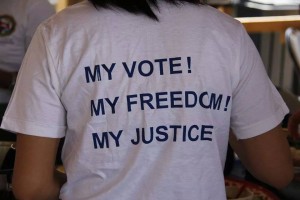
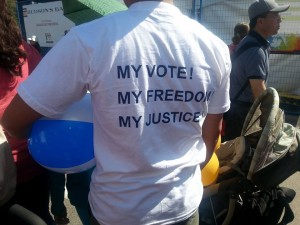
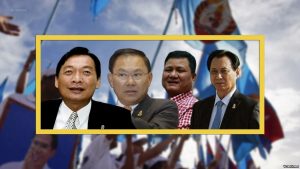
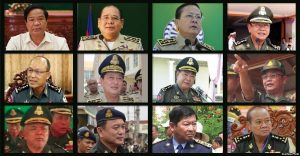
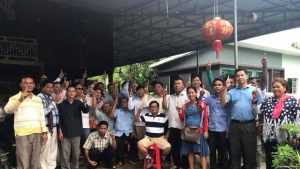
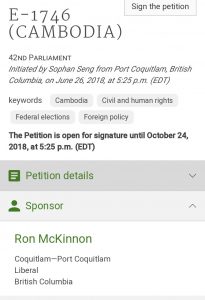
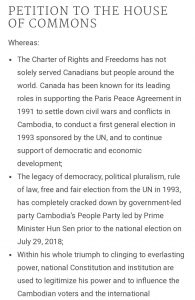
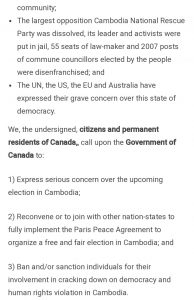
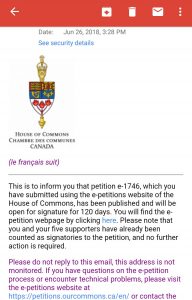
 Two things to be considerate on the recent election in Malaysia: the overseas Malaysians voters and the national institution.
Two things to be considerate on the recent election in Malaysia: the overseas Malaysians voters and the national institution.